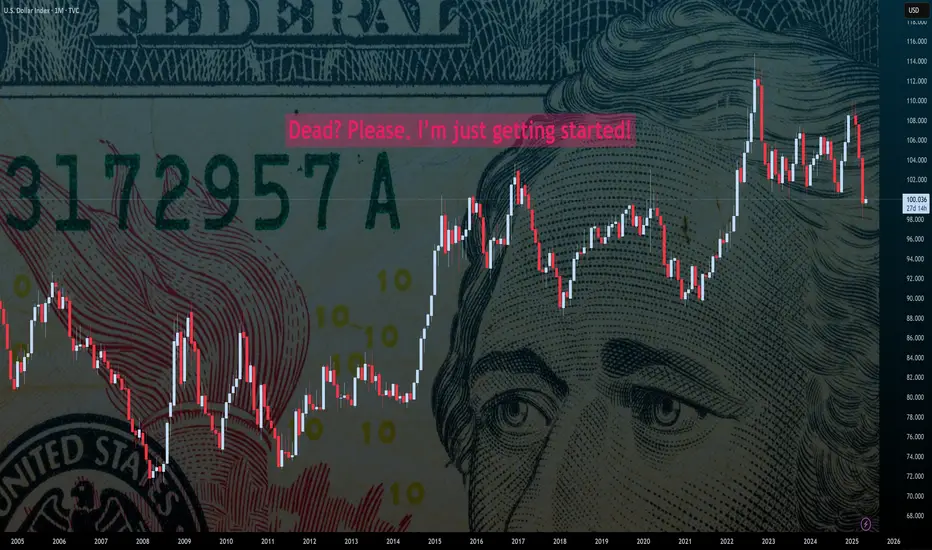In recent years, a group of emerging economies—Brazil, Russia, India, China, and South Africa, along with new partners like Iran and Saudi Arabia—have started challenging the dominance of the U.S. dollar. Known collectively as BRICS, this alliance aims to create a new global financial order, one that reduces dependence on the dollar.
From summits to currency talks, headlines suggest a big shift is coming. But how realistic is it? This article breaks down the strength of the dollar, the efforts by BRICS to introduce alternatives, and why dethroning the dollar is much harder than it sounds.

Why the U.S. Dollar Still Dominates Global Finance
Despite new challenges, the U.S. dollar remains the most used currency in global trade and finance. As of 2024:
- 88% of international transactions are conducted in dollars.
- 59% of global central bank reserves are held in dollars.
The reasons? Strong U.S. financial markets, high liquidity, trust in the legal system, and no capital controls. Whether it’s oil trading, international contracts, or foreign reserves, the dollar is deeply embedded in how the world does business.
What the BRICS Group Wants to Change
One of the main goals of BRICS is to reduce reliance on the dollar. At the 2024 summit in Kazan, Russia called the dollar a “weapon,” and China suggested the creation of a new shared currency. Some ideas include a gold-backed digital currency or a currency basket involving member nations.
In 2023, about 20% of global oil trade happened outside of the dollar. This was largely due to countries like Russia and China settling trades in their own currencies. It’s a sign of change—but still a small one.
Can BRICS Create a Shared Currency?
It sounds simple: create a new currency and start using it. But the reality is complex.
First, there’s a trust issue. Member nations have different interests. For example:
- India and China have ongoing border tensions.
- Brazil and South Africa are wary of giving China too much control.
- Legal systems and financial rules vary widely.
Without strong cooperation and a unified system, building a shared currency is unlikely.
Why the Chinese Yuan Isn’t a True Alternative
Of all BRICS nations, China’s yuan has the most global reach. But it still faces limitations:
- Only 7% of foreign exchange trading includes the yuan.
- Capital controls limit the free movement of money.
- China’s property crisis and weak domestic demand reduce investor confidence.
Even though yuan usage is rising, it still can’t compete with the dollar’s scale and accessibility.
Oil Trade Shift: Symbolic or Substantial?
Oil is one of the most traded commodities globally, and BRICS+ nations produce 44% of global crude oil. Some thought this could support a shift away from the dollar.
However:
- Oil only represents about 15% of global trade.
- Most of the world still uses the dollar for everything else—technology, agriculture, services, and more.
- Even major producers like Saudi Arabia remain tied to the dollar.
At the 2024 summit, Russian officials even advised bringing dollars and euros, not rubles—a clear signal of what’s still preferred.
New Financial Tools: Are They Game-Changers?
Some developments look promising:
- A blockchain-based payment system, sometimes called BRICS Bridge.
- Increasing use of local currencies for regional trade.
- Rising gold reserves—BRICS countries now hold around 42% of global FX reserves.
Russia and China, for example, now settle 95% of their trade without the dollar.
Still, these tools are early-stage and far from replacing established global systems like SWIFT, U.S. Treasuries, or Wall Street infrastructure.
Could U.S. Tariffs Backfire?
In 2025, former U.S. President Donald Trump warned of 100% tariffs on member states supporting de-dollarization. The goal: to protect the dollar’s dominance.
However, this could push nations further toward alternative systems. China and Russia are already motivated by sanctions to find new trade methods. But without full alignment, BRICS still struggles to coordinate an effective response.
Global Reserve Currency Trends
Let’s compare the current data:
- Dollar: 59% of global reserves
- Euro: 20%
- Yuan: 2.3%
- Global Trade in Dollars: Roughly 50%
- Oil Trade in Dollars: 80% (was 100% in 2020)
BRICS countries contribute 28% of global GDP, slightly ahead of the U.S. at 24%. Still, economic size doesn’t automatically lead to financial influence.
What Happens If BRICS Succeeds?
Suppose a new BRICS currency gains traction. The dollar weakens, inflation rises in the U.S., and confidence in American assets drops.
But this would hurt member nations too. For example:
- China owns $3 trillion in U.S. bonds.
- A dollar collapse would destroy the value of those assets.
- Businesses and investors might hesitate to use a new currency controlled by authoritarian states.
As investor Ray Dalio said, these efforts are about risk management, not a full-on financial revolution.
Why the Dollar Isn’t Going Anywhere (Yet)
Despite loud efforts and ambitious summits, the dollar remains firmly in place. While BRICS is promoting alternatives, the path forward is long and complex.
The dollar is:
- Trusted by global markets
- Deeply linked to trade and investment flows
- Supported by the world’s largest and most liquid financial system
Even countries exploring other currencies still use dollars for most major deals.
Conclusion: The Future of BRICS and the Dollar
The dollar’s dominance may decline slowly, but a complete shift is unlikely in the near term. BRICS countries are experimenting with financial alternatives, but lack of trust, coordination issues, and the strength of existing U.S. systems make a quick change very difficult.
Expect more local currency deals and digital payment trials, but for now, the dollar remains the world’s go-to currency. The real question is not whether BRICS will replace the dollar—but how much they can reduce dependence on it over time.
Big talk, BRICS flop—join real talk on Discord.
Click here to read our latest article- China’s Debt Crisis



